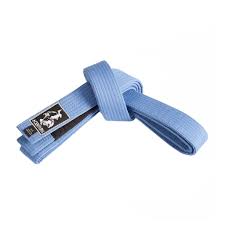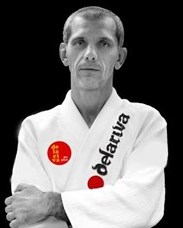I have been covering Gordon Ryan as a “journalist” since the beginning of his career, well before professional jiu-jitsu garnered attention from reputable news sources. I’m not a professional writer; I’m just a guy who loves jiu-jitsu and enjoys blogging that happened to write for a few decent online publications at a time when no one was a professional anything.
I remember Gordon as a skinny purple belt winning the Newaza Open, then seeing him win at the NOGI worlds as a brown belt. I knew then he would be a special athlete but had no idea the larger-than-life icon he would become.
Back then, he was just Gary Tonon’s student and Eddie Cummings training partner to the eyes of the world. Until he won the Eddie Bravo Invitational (EBI), beating Yuri Simoes in OT, and immediately earned himself a spotlight. The rest has been a truly remarkable story worthy of a Netflix miniseries.
There is no doubt that Gordon Ryan is a super athlete, and if he stays healthy, his reign as king of the grappling world should go unchallenged for as long as he wants. Eventually, he may even switch to gi competition and, undoubtedly, will dominate that arena as well.
However, there is a rather nefarious nature to his character that must be discussed. Gordon’s online presence, in a word, can be brutal, and it’s difficult as a lover of jiu-jitsu not to at least address it.
His often abhorrent, outspoken self-confidence caused him to become one of the most polarizing athletes our sport has ever known, and it’s been a topic of debate amongst BJJ traditionalists and reporters for years.
You see, there are two sides to BJJ. The art of jiu-jitsu and the professional athlete elements. The journalist in me recognizes that Gordon’s contributions to the growth of professional BJJ are unmatched. One could even argue that without Gordon, none of this would have happened.
So, why is there a problem? The theatre of the fight game is a necessary element for success. There needs to be drama to sell fights, and Gordon provided a surplus of mouth-dropping moments bringing new eyes to check out the action.
And as professional jiu-jitsu became more mainstream, the jiu-jitsu world exploded too. I watched gyms flourish overflowing with new students and noticed more randoms at the bar mentioning jits culture than ever. It’s been a renaissance unmatched since Royce Gracie first set foot into the Octagon.
But the other side of jiu-jitsu is the art, which is why BJJ is so unique at its core. Most jiu-jitsu practitioners train to better their lives through the beauty of the struggle to learn it, and that is sacred ground worth protecting.
Believe it or not, plenty of practitioners couldn’t pick Gordon out of a lineup and have been training for years. These practitioners live for the comradery and relationships forged through mutual respect in battle. A philosophy that runs slightly off the base of Gordon’s often cringy interactions with fellow competitors or tirades about killing homeless kids in NYC.
From a journalistic point of view, you can see my dilemma while covering the sport over the past seven years. There are many moments when I appreciated Gordon. On his broad shoulders, he carried professional jiu-jitsu to the top of Olympus through herculean feats of determination. But I am also forced to examine the route he used to get there as someone sworn to protect our beloved art.
In the social media culture of modern society playing the heal pays the bills; some of our biggest stars use these tactics to keep themselves on the top of the hill. Colby Covington created an entire persona that saved him from drifting into obscurity on the UFC welterweight rooster, and Logan Paul, well, he’s Logan Paul.
But is this phenomenon new to our era, or has it occurred naturally over the generations? If competitors like Mike Tyson or Muhamad Ali were tamer to the public eye, would they have transcended to the godlike figures we recognize today?
Gordon wants the rest of these broke bums– professional jiu-jitsu athletes– to follow suit, too. He’s genuinely upset that they don’t market themselves enough to garner attention to the sport. He calls them lazy and stupid regularly.
Is he wrong? His net worth has grown leaps and bounds, and his notoriety has exploded into the mainstream–he was on Joe Rogan’s Podcast twice! Why shouldn’t everyone try to jump on that gravy train?
Finally, just to put a stamp on it, don’t forget the overwhelming gorilla in the room. Pun intended. His skill, work ethic, and coaching are unmatched. No one has even come close to beating him in the last three years, and it kind of makes it unexciting now. The rest of the jiu-jitsu world is playing for second place while he strides around arrogantly, laughing in their faces.
So, what do we do then? As a recent gym owner, I teach kids, and I don’t know how I would react if one of them displayed the same antics as him. A large part of martial arts is building character, and I’m not saying we must live the samurai code as bushido monks, but a small amount of sportsmanship and decorum needs to be adhered to.
I’m not sure I or anyone else has a clear answer to the love/hate relationship between Gordon and our BJJ world. But we all keep tuning in. Jiu-jitsu will continue to grow, and more than likely, Gordon Ryan will remain at the center of that upward arch. There is nothing we can do to stop it. So, I guess this article is less an admonishment damming his actions and more a statement of facts.
Hopefully, there will be an awakening, and Gordon will take notice of the whispers behind closed doors until he finally evolves into a benevolent ruler. Many young grapplers will be looking for a role model, and there are some things more important than the number of commas in your bank account.
But, even if he doesn’t, the rest of the grappling world should be advised that this kid will go down as one of the most outstanding winners in the history of sports in the same conversation as Michael Jordon, Dan Gable, and Tom Brady. He’s a once-in-a-generation talent we better get used to seeing around regardless of how anyone feels about it.






